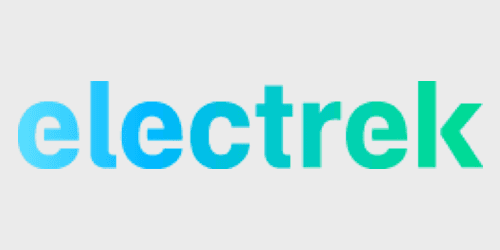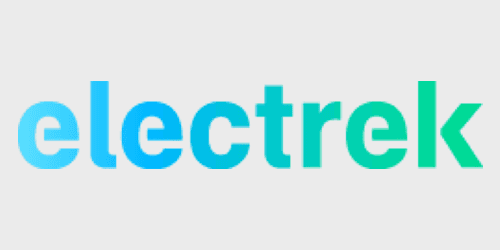
Washington, DC, has proposed a regulation that will govern electric vehicle (EV) charging on public streets. The contrast with surrounding Maryland neighborhoods shows how forgoing utility-operated and regulated-charging costs residents dearly.
The regulation was proposed by Jeff Marootian, director of the District Department of Transportation (DDOT), on Friday, February 21, 2020.
The regulation authorizes the director to lease public on-street parking spots for $2,400 per year to private businesses to resell electricity and bill as they like. This is a negligible amount. Private individuals pay an average of $7,200 per year to reserve a parking spot in downtown DC, or $3,000 per year in the residential neighborhoods surrounding downtown.
Private charging companies are invited to apply for the spots. DDOT will not own any chargers going forward, although it currently owns a handful of curbside chargers operated by ChargePoint (14th and U St. NW location shown in header image). Curbside charging is needed in the District, because 70% of residents live in multi-dwelling units without dedicated off-street parking.
The proposed EV charging regulation
- In addition to whatever prices the vendor sets, the regulation requires a minimum $1 per hour charging fee and $10 per hour fee while not charging. It is unclear whether these fees are returned to the city, or kept by the vendor. (2406.29(e))
- If you’re plugged in for over four hours during the day between 9 a.m. and 8 p.m., you’re fined $30, even if you’re still charging. Applies every day of the year. (2406.29(e) and (2406.14(b-c))
- If any car is parked without being plugged in, a $100 fine is assessed. (2406.29(a) and 2406.14(b-c))
The DC EV charging law is very strict on allocating eligible on-street parking spots:
- Blocks with Residential Permit Parking (RPP) are ineligible. In DC, virtually every neighborhood in the city uses the RPP system. (See PDF map.) The exception is mainly the central business district (CBD), which is metered, and the least dense, outer suburban neighborhoods. RPP blocks are not metered, and while the parking is available to anyone, vehicles without RPP permits can only park for two hours at a time. (2406.22(c))
- Blocks with rush-hour parking restrictions and snow emergency restrictions are ineligible. This limits potential spots in the District’s CBD. (2406.22(b))
- No more than two spots per block can be designated for EV charging. (2406.23).
- For every two charging stations installed in the CBD by a vendor, the vendor must install seven stations, each serving at least two spaces, outside the CBD. A vendor’s permit application for a 15th station won’t be approved until they have charging stations in each ward.
Unless the DC Council takes action soon, the EV charging regulation will become law. The public has until March 21, 2020, to submit comments, which can be emailed to publicspace.policy@dc.gov.
One neighborhood highlights the difference between utility-regulated curbside charging and private vendors
Takoma Park, Maryland, sits on both sides of the DC-Maryland border. It was developed this way. Both the DC and MD residents of this neighborhood are served by the same utility (Pepco) and the same public transit system (WMATA). But in Maryland, the utility regulator authorized Pepco to offer Level 2 EV charging for $0.18 per kWh on public rights-of-way, with that price controlled like any other electric tariff. Takoma Park has four of these public Level 2 chargers.
No matter what car — BEV or PHEV — you drive, when you plug in to the Pepco chargers on the Maryland side, you know you’re paying $0.18 per kWh.
District residents likely to pay $2.50 per hour for charging, pricing out charging for many
Residents of Takoma on the DC side of the border are likely to pay a minimum of $2.50 per hour under the proposed regulation. That assumption takes EVgo’s flat $1.50/hr for L2 charging, and adds the District’s $1/hr fee, assuming EVgo is required to remit that fee to the District.
When you consider that the majority of PHEVs can take only 3.3-3.6 kW of charging, that means they’ll be paying roughly $0.80 per kWh. This applies to a lot of BEVs as well, like the Nissan Leaf S trim up to 2018. Paying this much is equivalent to paying $10 per gallon for gasoline.
Pepco applied in August 2018 to the DC Public Service Commission, seeking to deploy neighborhood public chargers in DC. Electrek covered that decision, where the PSC said that under DC law, Pepco had to demonstrate that the needs of EV drivers were not being met by the competitive market before it could operate its own chargers, and that it had not done so.
However, the PSC did authorize Pepco to build out the “make-ready” infrastructure for 35 public neighborhood chargers at DC ratepayers’ expense. This means that DC ratepayers will be subsidizing the private vendors who will now benefit from DDOT’s proposed regulation.
Director Marootian unavailable for comment
Electrek emailed the DDOT Monday morning with a series of questions. We followed up again Tuesday, and we were told to expect a response by the end of the day. Repeated follow-ups since then have gone unanswered.
Electrek’s Take
There’s so much to dislike here:
- Billing by the hour for charging: California has banned all new Level 2 chargers from billing by the minute for electricity starting January 1, 2021, because it’s inherently unfair. PHEVs and lower priced BEVs that charge at 3.3kW will not be able to make use of these chargers. Keep in mind, the regulation is about fees for charging. Fees for parking will still exist.
- Placement rules deny benefits to District residents most in need: By excluding RPP blocks, DDOT has all but assured that the residents who most need curbside charging — those living in apartment buildings — will be unable to benefit from the infrastructure they helped pay to deploy. In fact, DDOT’s RPP exclusion combined with its multi-ward requirements all but assure that curbside EVSEs will pop up in the most suburban parts of the District where everyone on the block already has off-street parking. What a waste.
- Overnight charging priced out: Billing $10/hr for every hour an EV is connected but not charging effectively prices out overnight parking. For example, the Chevy Bolt, Nissan Leaf Plus, and Tesla Model 3 Mid-Range all have batteries between 62-66kWh in size. Assuming you plugged in at 7 p.m. with 10% battery remaining (a lucky maneuver requiring some planning), you would finish charging by 4 a.m. Assuming you didn’t return to your car until 8 a.m., you’d be penalized $40.
- No minimum kW guarantee: The regulation contemplates shared charging posts. As we saw in New York City, this meant a drop down to below 5kW, less than normal L2 charging. When you’re being billed by the hour, this greatly increases the cost to charge.
- Placement rules create artificial scarcity: The byzantine placement rules mean we can’t count on any vendor competition to keep prices in check. The most likely effect is that key downtown (CBD) locations will have crazy-high prices that are more about monetizing the parking spot than monetizing the charger. Right now, it can be pretty tough to find a metered curbside parking spot on K St. NW (DC’s famous lobbyist corridor). But now EVSE operators can charge whatever they want for two parking spots per block, and there’s no doubt enough rich lobbyists that will oblige. The real competition is the parking garages that charge $12/hr in the CBD.
- Privatizing profits with public money: Using ratepayers funds to subsidize private charging operators is textbook “socialize the risk, privatize the profit.” We can’t help but note that 1) this regulation is perfectly timed to the PSC approved subsidy for “make-ready” neighborhood public charging, meaning these vendors won’t even have to pay the lion’s share of the cost for the buildout; and 2) Pepco is owned by Exelon, which is also a partial owner of ChargePoint, which means Exelon is now benefiting from selling electricity with unregulated prices.
While we can’t confirm, it appears that DDOT has proposed this regulation without consulting with any EV driver groups first. It certainly appears as though vendors were consulted, however. We hope the DC Council rejects this regulation entirely, because it’s worse than nothing. People see these public EV charging posts, have heard that driving an EV is supposed to be cheaper than driving an ICE, and then get a rude awakening. This will ultimately hurt EV adoption, and hurt DC’s working poor. The less expensive BEVs and PHEVs are most discriminated against.
The Council should focus on helping DC’s multi-dwelling residents first and foremost. The way you do that is by providing curbside charging at prices that are as close as possible to standard-offer service from the utility. So basically, what Maryland did for L2 charging. As for the tensions about taking away RPP parking spots and dedicating them to EVs, we agree that this is tough politically, and so prefer the plan in London. (Profiled by the Fully Charged, video link) In this situation, instead of trying to reserve a couple spots for EVs, the focus was on widespread deployment elegantly built into lamp posts and bollards, so that residents could likely find a spot every couple days.
If you’re a DC resident, please also consider writing to Michael Porcello, Legislative Director for Councilmember Cheh, who chairs the Transportation Committee: mporcello@dccouncil.us
FTC: We use income earning auto affiliate links. More.





Comments